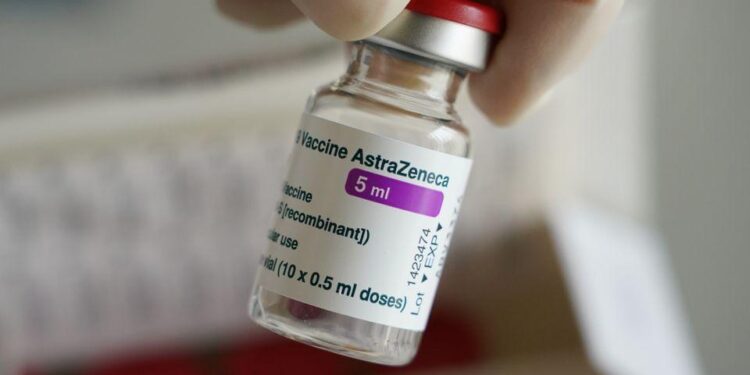The UK’s leading pharmaceutical industry body has found AstraZeneca in breach of its code of practice over the marketing of Symbicort, the company’s asthma and chronic obstructive pulmonary disease (COPD) inhaler. The ruling by the Prescription Medicines Code of Practice Authority (PMCPA), announced on Wednesday, marks a significant rebuke for the global drugmaker, highlighting concerns over promotional practices and adherence to regulatory standards in the competitive respiratory drug market.
UK Industry Regulator Rules AstraZeneca Violated Marketing Code Over Symbicort Promotion
The UK’s leading pharmaceutical watchdog has concluded that AstraZeneca breached the established marketing code concerning its promotion practices for Symbicort, an asthma and COPD inhaler. The regulator highlighted several instances where AstraZeneca’s promotional activities were found to be misleading, emphasizing product benefits without adequately balancing the potential risks associated with its use. These findings underscore the necessity for stringent adherence to promotional guidelines within the pharmaceutical industry to ensure patient safety and informed medical decisions.
Key points identified by the regulator include:
- Exaggerated claims about Symbicort’s effectiveness in certain patient groups
- Insufficient disclosure of side effect profiles and contraindications
- Use of promotional material that lacked clear, balanced information
| Violation Category | Details | Regulatory Action |
|---|---|---|
| Misleading Claims | Overstated benefits in marketing brochures | Formal warning issued |
| Insufficient Risk Information | Unclear side effect communication | Requirement to revise materials |
| Promotion Conduct | Non-compliant promotional events | Mandatory staff retraining |
Analysis of AstraZeneca’s Marketing Practices and Compliance Failures in Symbicort Case
AstraZeneca has been formally found in breach of the UK industry’s promotional code concerning its marketing of Symbicort, a medication primarily prescribed for asthma and chronic obstructive pulmonary disease (COPD). The ruling by the industry watchdog highlighted several instances where AstraZeneca’s promotional materials allegedly presented information that was misleading or not fully substantiated by clinical evidence. Particular concerns centered on claims regarding Symbicort’s efficacy and safety profile, which were deemed to potentially influence prescribing behaviors unfairly. The investigation underscored the importance of ensuring all marketing communications comply with stringent regulatory standards to maintain public trust and patient safety.
Key findings from the compliance review include:
- Breach of promotional guidelines related to unsubstantiated superiority claims
- Failure to present balanced information about adverse effects
- Use of imagery and language that could be construed as exaggerating benefits
| Category | Issue Identified | Potential Impact |
|---|---|---|
| Marketing Claims | Unsubstantiated efficacy statements | Physician prescribing influenced |
| Safety Information | Incomplete adverse event disclosure | Patient risk underestimated |
| Visual Content | Use of emotive imagery | Emotional bias in decision-making |
Recommendations for Strengthening Ethical Standards in Pharmaceutical Advertising Following Ruling
In light of the recent ruling against AstraZeneca for breaching advertising codes, it is imperative that pharmaceutical companies reevaluate their current marketing frameworks. Enhanced scrutiny and transparent communication must become central pillars of any promotional activity. Companies are encouraged to implement robust internal compliance audits and foster a culture where ethical considerations are prioritized over competitive pressures. Regular training sessions focused on regulatory updates and ethical marketing practices should be mandatory for all sales and marketing teams to ensure adherence to both legal and moral standards.
Industry regulators and stakeholders can further support these efforts by adopting a multifaceted approach encompassing:
- Clear guidelines on allowable promotional claims, ensuring they are scientifically verifiable and not misleading.
- Stricter penalties for violations to act as stronger deterrents against non-compliance.
- Open channels for whistleblowers to report unethical advertising without fear of retaliation.
- Collaborative forums between regulators and industry to continuously update and improve advertising standards.
| Recommendation | Expected Impact |
|---|---|
| Internal Compliance Audits | Early identification of violations |
| Mandatory Ethics Training | Consistent industry-wide awareness |
| Clear Promotional Guidelines | Reduced consumer misinformation |
| Whistleblower Protections | Increased transparency |
Closing Remarks
The findings against AstraZeneca mark a significant moment in the ongoing scrutiny of pharmaceutical marketing practices in the UK. As the industry body reinforces its commitment to ethical standards, AstraZeneca faces the challenge of addressing the breach and restoring trust. This case underscores the broader imperative for transparency and compliance within the pharmaceutical sector, highlighting the regulatory pressures companies must navigate in promoting their products.
















